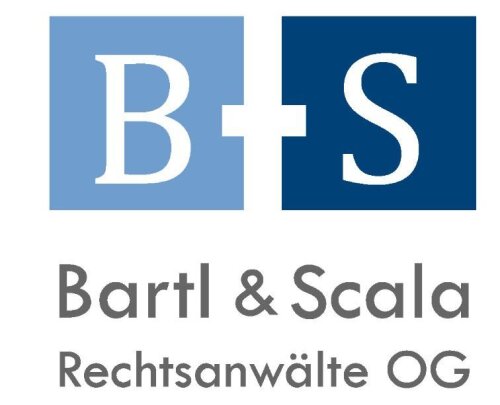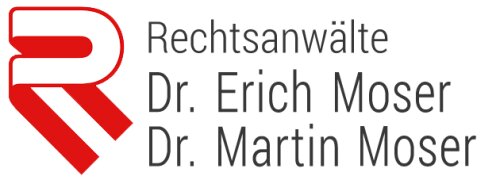Best Natural Resources Lawyers in Austria
Share your needs with us, get contacted by law firms.
Free. Takes 2 min.
Or refine your search by selecting a city:
List of the best lawyers in Austria
About Natural Resources Law in Austria
Natural Resources Law in Austria encompasses the legal framework governing the exploration, extraction, management, and protection of natural resources such as minerals, water, forests, and land. Austria, with its diverse geography and rich natural landscapes, places a strong emphasis on sustainable management practices. The laws are designed to balance economic development with environmental preservation, ensuring that natural resources are utilized responsibly and equitably.
Why You May Need a Lawyer
There are various scenarios where individuals or businesses might require legal assistance in the field of Natural Resources in Austria:
- Negotiating licenses or permits for resource extraction or use.
- Resolving disputes over land ownership or mineral rights.
- Ensuring compliance with environmental regulations and standards.
- Dealing with contractual agreements related to resource management or operation.
- Navigating the complexities of cross-border resource management initiatives.
Local Laws Overview
Austria's legal framework for natural resources is governed by a combination of federal and provincial laws. Key aspects include:
- The Federal Forestry Act governs the preservation and sustainable use of forest resources.
- The Mineral Resources Act regulates the exploration and mining of mineral deposits.
- Water management is covered by the Water Rights Act, which focuses on sustainable and equitable use.
- Environmental Impact Assessments are mandatory for significant projects impacting natural resources.
- Protected areas are designated under the Nature Conservation Act to preserve biodiversity.
Frequently Asked Questions
What are the main natural resources in Austria?
Austria is rich in forests, water bodies, agricultural land, and mineral resources such as iron ore, lignite, and magnesite.
Who is responsible for managing natural resources in Austria?
Resource management is a joint responsibility between federal authorities and the provinces, with specific bodies overseeing different resources.
Do I need a permit to use natural resources on my property?
Yes, permits are often required, especially for forestry, water extraction, and mineral mining, to ensure sustainable use and compliance with laws.
How does Austria promote sustainable use of natural resources?
Austrian law integrates sustainability into its legal framework through regulations requiring environmental impact assessments and adherence to strict conservation measures.
Can foreign companies invest in Austria's natural resources sector?
Yes, foreign investment is allowed, but companies must comply with Austrian laws and may face specific restrictions depending on the resource type.
What are the penalties for violating natural resources laws in Austria?
Penalties can range from fines and sanctions to revocation of permits or licenses, depending on the severity of the violation.
How are natural resource disputes resolved?
Disputes are typically resolved through negotiation, mediation, or through the Austrian courts if necessary.
Are there incentives for businesses to engage in sustainable practices?
Yes, there are various incentives, including subsidies, grants, and tax benefits for businesses adopting sustainable practices.
What role do local communities play in resource management?
Local communities often have a voice in management practices, particularly through consultations in environmental assessments and local governance structures.
How can I keep updated about changes in natural resources law?
Keeping in touch with legal experts, subscribing to governmental updates, and participating in industry groups are effective ways to stay informed.
Additional Resources
For further information and support regarding natural resources in Austria, consider contacting:
- Federal Ministry of Agriculture, Regions and Tourism: Provides oversight on agriculture, forestry, and water management.
- Austrian Mining and Metallurgy Association: A resource for those involved in mining activities.
- Austrian Economic Chamber: Offers insights and support for businesses in the natural resources sector.
Next Steps
If you require legal assistance, consider the following steps:
- Research and identify a lawyer or law firm specializing in natural resources law.
- Prepare a clear summary of your legal needs and any pertinent documentation.
- Schedule a consultation to discuss your situation and explore your legal options.
- Evaluate the lawyer's experience and approach to ensure they align with your objectives.
Lawzana helps you find the best lawyers and law firms in Austria through a curated and pre-screened list of qualified legal professionals. Our platform offers rankings and detailed profiles of attorneys and law firms, allowing you to compare based on practice areas, including Natural Resources, experience, and client feedback.
Each profile includes a description of the firm's areas of practice, client reviews, team members and partners, year of establishment, spoken languages, office locations, contact information, social media presence, and any published articles or resources. Most firms on our platform speak English and are experienced in both local and international legal matters.
Get a quote from top-rated law firms in Austria — quickly, securely, and without unnecessary hassle.
Disclaimer:
The information provided on this page is for general informational purposes only and does not constitute legal advice. While we strive to ensure the accuracy and relevance of the content, legal information may change over time, and interpretations of the law can vary. You should always consult with a qualified legal professional for advice specific to your situation.
We disclaim all liability for actions taken or not taken based on the content of this page. If you believe any information is incorrect or outdated, please contact us, and we will review and update it where appropriate.
Browse natural resources law firms by city in Austria
Refine your search by selecting a city.















